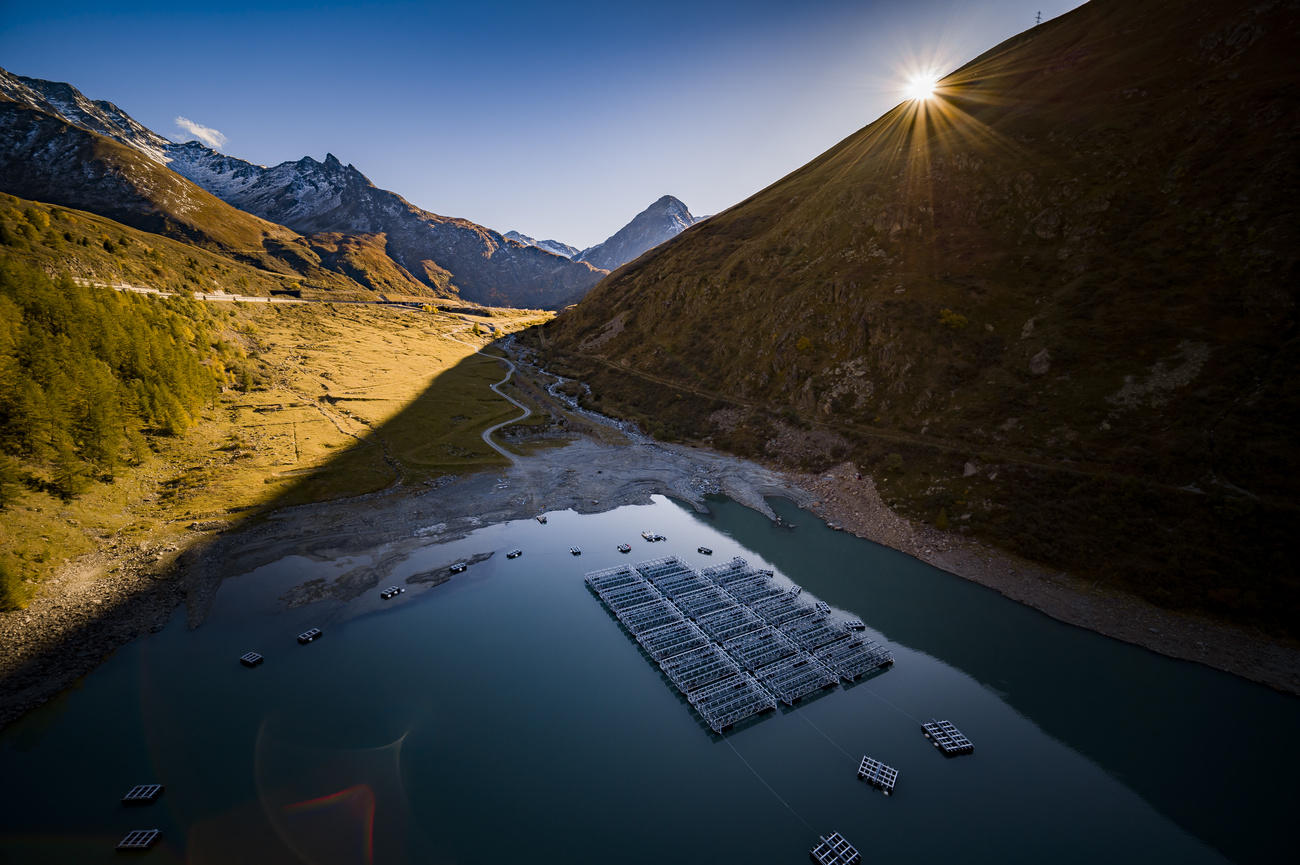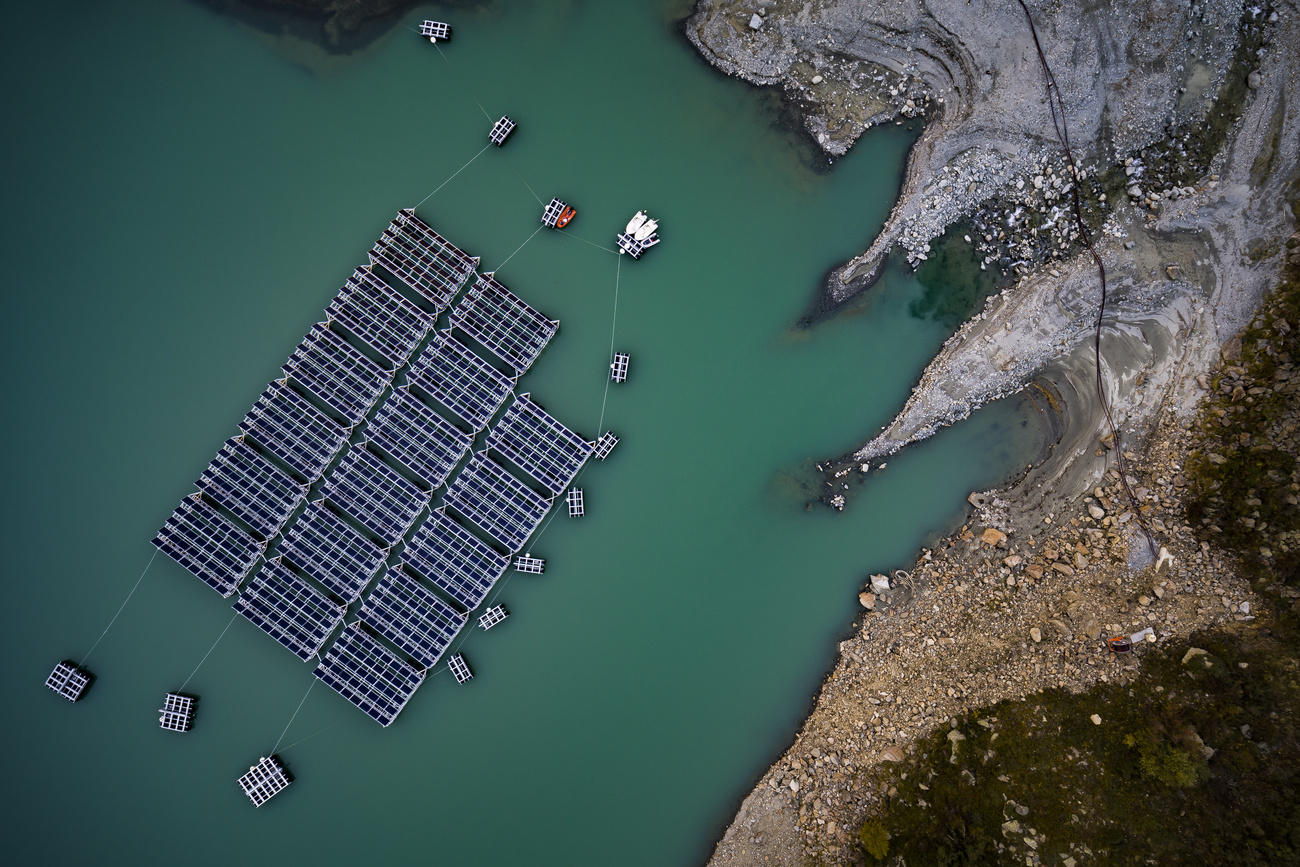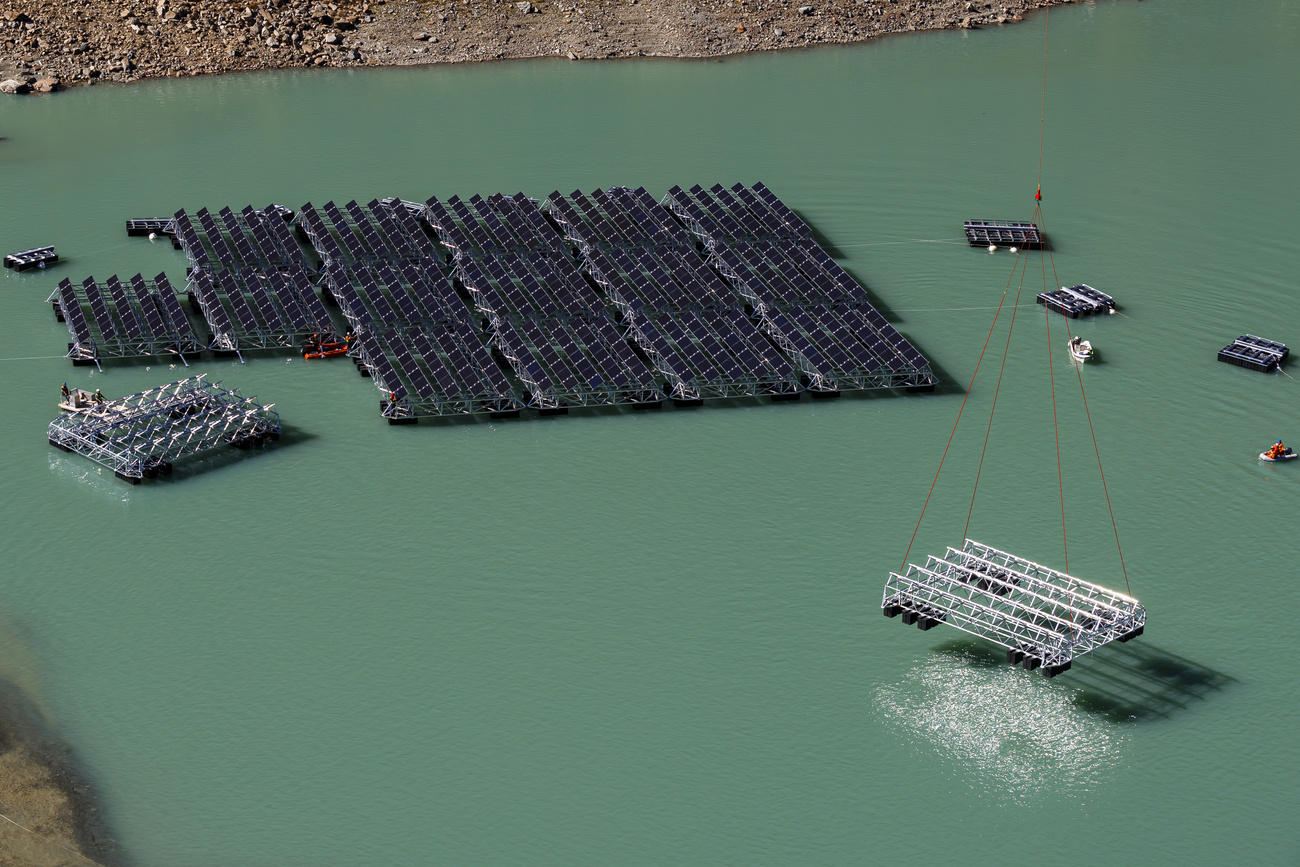
Floating solar panels unveiled in Swiss Alps

A solar panel project which could power over 6,000 households has been launched in a mountain lake in southwestern Switzerland.
The Romande Energie companyExternal link unveiled the first part of its floating solar project in Bourg-Saint-Pierre on Wednesday after six years of exploratory work.
The installation consists of 2,240 square metres of solar panels sitting on a 36-part aluminium and polyethylene frame anchored to the bed of the mountain lake. The frame can rise and fall according to the water level and can support up to 50cm of snow.
As the lake – an artificial dammed construction – sits at 1,810 metres above sea level, extreme weather conditions, including the freezing of the lake itself, are to be expected.
However, the stronger UV rays and reflections from the surrounding snow mean that the panels can produce up to 50% more energy than a similar installation on low-lying land.
In their current test phase the panels are expected to produce enough annual energy to power 220 average households. If the project is deemed to be feasible after a two-year trial period, the park will be enlarged to produce power for some 6,100 households.
Work on the project has so far cost CHF2.35 million ($2.36 million) and is supported by the Swiss Federal Office of EnergyExternal link.



In compliance with the JTI standards
More: SWI swissinfo.ch certified by the Journalism Trust Initiative




























You can find an overview of ongoing debates with our journalists here . Please join us!
If you want to start a conversation about a topic raised in this article or want to report factual errors, email us at english@swissinfo.ch.